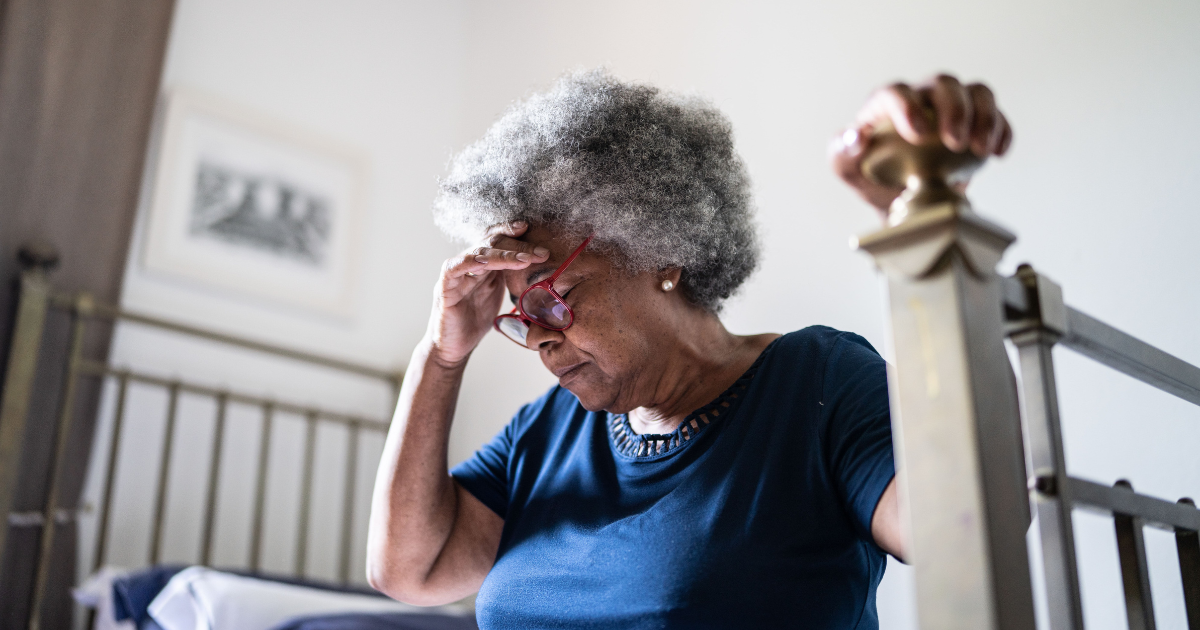Vitamin B12 deficiency symptoms

We may not think about vitamin B12 often, but a vitamin B12 deficiency is noticeable and can be dangerous for our bodies. Read on to learn more about what vitamin B12 does for us and how to avoid becoming vitamin B12 deficient.
Vitamins can do a lot for our bodies, even if we don’t always notice a difference. But what happens when we don’t get enough of a specific vitamin? If you have a vitamin B12 deficiency, you may start to notice physical and neurological symptoms. The good news is you can treat these with increased vitamin B12 intake. Read on to learn more about the symptoms of vitamin B12 deficiency and what to look for.
What is vitamin B12, and what does it do for our bodies?
“Vitamin B12, or cobalamin, is a water-soluble vitamin from animal products that helps with metabolism, the function of the central nervous system, red blood cells and the making of DNA,” says family medicine specialist Mindy Lacey, MD. “It’s recommended for adults to have 2.4 micrograms of vitamin B12 daily.”
The human body does not make vitamin B12 on its own, but many people get it from meats, eggs, dairy products, or certain cereals. Most people get a sufficient amount of vitamin B12, however, individuals over 60 can sometimes have difficulties absorbing vitamin B12. The amount of vitamin B12 people need will depend on age.
“Our bodies absorb vitamin B12 by combining it with proteins in our stomachs (intrinsic factor) to be absorbed by our digestive systems,” says Dr. Lacey. “Those whose bodies do not have intrinsic factors are pernicious and anemic, so their bodies cannot absorb vitamin B12, thus creating a deficiency.”
What are the best ways to get vitamin B12?
Vitamin B12 is natural and found in foods from animals, including meat, fish, eggs and dairy products.
“The highest amount of vitamin B12 comes from beef liver,” says Dr. Lacey.
Vegetarians and vegans can still get their recommended vitamin B12 amounts through supplements and fortified cereals, Dr. Lacey explains. Soy products, veggie burgers and yeast extract can also contain vitamin B12.
What is a vitamin B12 deficiency?
If your body doesn’t have enough healthy red blood cells, vitamin B12 deficiency anemia can occur, but it is also possible to have a vitamin B12 deficiency without anemia. Vitamin B12 deficiency can cause permanent damage to the brain and nervous system. Dr. Lacey explains this is also why many people feel tired, weak and dizzy.
Other symptoms of vitamin B12 deficiency include:
- Nausea, vomiting and diarrhea
- Loss of appetite
- Weight loss
- Yellow tint to the skin
- Sore mouth or tongue
- Depression
- Poor reflexes
- Irritability
- Numbness in feet and hands
- Impaired vision
- Trouble speaking or walking
- Confusion
“People can become vitamin B12 deficient for many reasons like having a diet not adequate in vitamin B12,” says Dr. Lacey. “If someone can’t absorb vitamin B12 or they have celiac disease or Crohn's, they could not be getting enough. Other things like prolonged use of antacids or medicines for acid reflux can make someone vitamin B12 deficient.”
Does vitamin B12 give you energy?
“A vitamin B12 deficiency makes us feel tired and fatigued, so when we get the recommended amount, it feels like an energy boost,” explains Dr. Lacey.
In a roundabout way, vitamin B12 gives you energy because it’s necessary for your body to get energy from food. Foods that give our bodies the most energy are usually high in glucose and carbohydrates, and vitamin B12 is necessary for the body to metabolize glucose and convert food into energy.
How do you treat a Vitamin B12 deficiency?
Because many of the symptoms are non-specific, Dr. Lacey explains it can be difficult to recognize a Vitamin B12 deficiency. Most healthcare providers will do blood tests to check vitamin B12 levels, especially for those at risk. Older people who aren’t producing as much stomach acid and vegans and vegetarians who aren’t consuming animal products or animal by-products are considered at risk.
“Vitamin B12 deficiency can be treated with vitamin B12 shots,” says Dr. Lacey. “You can go to your primary care doctor if you suspect you have low energy and aren’t getting enough vitamin B12. We’ll usually do blood tests to diagnose a vitamin B12 deficiency, and your doctor might recommend an oral supplement.”
Looking for a primary care doctor? We can help! Call us at 800.922.0000 to find a doctor near you or visit NebraskaMed.com/Doctors.





